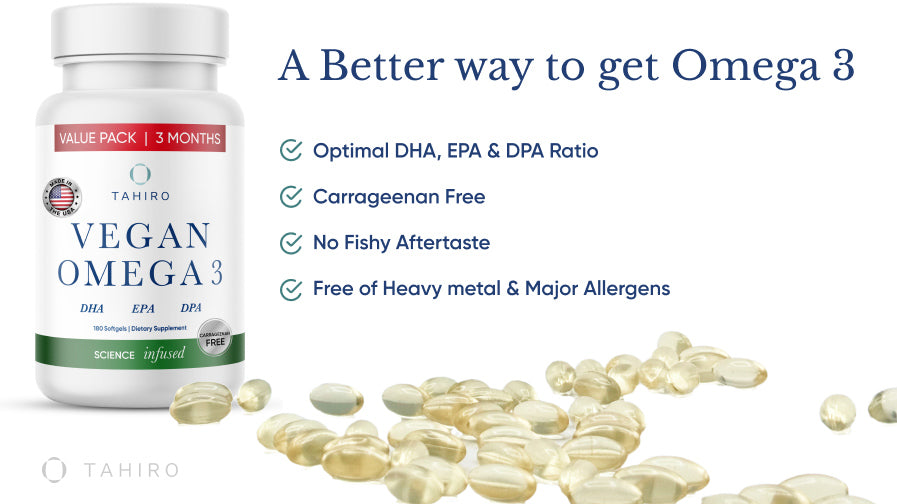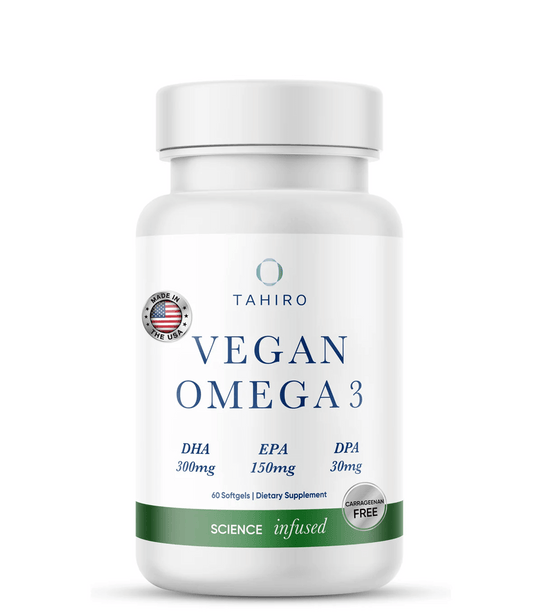Omega-3 fatty acids are essential to the body since they cannot be produced independently. They have gained popularity due to their countless health benefits. They may help reduce inflammation, promote heart health, and reduce the risk of chronic illnesses.
Many people often believe that omega-3 fatty acids and fish oil are the same. While they are closely related, they are not identical.
In this article, we’ll explore the differences between omega-3 and fish oil. We will talk about the health benefits of omega-3, its sources, and which is better to take.
Is Omega 3 the Same as Fish Oil?
Omega 3 and Fish Oil are not the same.Omega-3 refers to a group of fatty acids with a double bond located three carbons away from the methyl end of the molecule. Fish oil, on the other hand, is a dietary supplement derived from the tissues of fatty fish, such as salmon, mackerel, and anchovies, which are rich sources of omega-3 fatty acids.
Omega-3 fatty acids are essential, meaning the body cannot produce them independently. There are three main types of omega-3 fatty acids: alpha-linolenic acid (ALA), eicosapentaenoic acid (EPA), and docosahexaenoic acid (DHA).
While Fish oil is a popular way to increase omega-3 intake, other sources of omega-3 are worth considering and will be mentioned later in this article.
Health Benefits of Omega-3s
Omega-3 fatty acids offer a wide range of health benefits. However, the specific benefits may vary depending on the type of omega-3 and its source. Here are some common benefits associated with omega-3 and fish oil consumption.
- Brain health. DHA, in particular, is essential for brain development and cognitive function. It may also help protect against age-related cognitive decline.
-
Support heart health. Omega-3 fatty acids may help reduce the risk of heart disease by lowering triglycerides, reducing blood pressure, and improving cholesterol profiles.
- Reducing inflammation. Omega-3s have anti-inflammatory properties and may help manage chronic inflammatory conditions like arthritis.
-
Eye health. DHA is a crucial component of the retina. Sufficient intake of omega-3 may help maintain good vision and reduce the risk of age-related macular degeneration.
-
Mood and mental health. Evidence suggests that omega-3 can help improve mood and may be beneficial for people with depression and anxiety.
Different Sources Of Omega 3s
Fish oil is one of the many sources of omega-3 fatty acids. Here are some of the best sources of omega-3 fatty acids.
Fatty fish
Chia seeds
Flaxseeds
Walnuts
Hemp seeds
Algal oil
Fatty fish are one of the best sources of omega-3 since they provide a substantial amount of omega-3s. Great options include salmon, mackerel, sardines, and anchovies. When purchasing fish, make sure you opt for wild-caught over farmed-raised since it will have a higher content of omega-3.
For individuals who prefer a plant-based diet or those concerned with mercury contamination in fish, algal oil supplements offer a vegan-friendly source of EPA and DHA. Algal oil is derived from algae, which is the original source from which fish obtain their omega-3s.
Incorporating these sources of omega-3 into your diet can promote overall wellness. Remember that a balanced diet with various sources will provide the best results.
Which Is Better: Fish oil or Omega 3?
The choice between fish oil and vegan omega-3 supplements depends on several factors, such as dietary preferences, health goals, and potential dietary restrictions.
Both options can be a valuable addition to your diet if you aim to increase your omega-3 intake. If you have doubts, consult a health professional to determine the best choice for your needs and health goals.
With that said, remember there are some cons when choosing fish oil supplements. They may contain a higher mercury content, and they are not very environmentally friendly. For this reason, algal-based omega-3 supplements may be a better option to help provide a high intake of omega-3.





